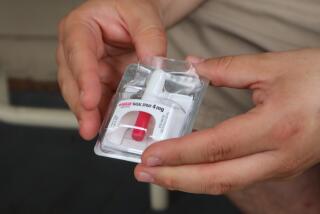Buy California farm products bill clears committee unanimously
A bill that would require prisons, schools and other public institutions to give preference to California farm products handily cleared a committee Wednesday.
The Choose California Act, sponsored by Assemblyman Chris Holden (D-Pasadena), cleared the Assembly Agriculture Committee on a 7-0 vote.
The proposed law, AB 199, would mandate public institutions to buy California agriculture products if the price is within 5% of the lowest out-of-state competitor.
Quiz: How much do you know about California’s economy?
Schools would be exempt from that rule and would be required to buy California-grown products only if they are cheaper.
Existing law gives California products preference only if the cost and value are equal to out-of-state competitors.
California, which leads the country in agriculture production, had sales of $43.5 billion in 2011, according to state agriculture statistics. Almost 82,000 farms in the state produced more than 400 agriculture products. Dairy is the state’s biggest agriculture commodity.
“This bill is a win-win for everyone,” Holden said in a statement. “The public institutions get a locally grown product, we’re helping create opportunities for our farmers and a new appreciation for local food helps stimulate the economy.”
Assemblywoman Mariko Yamada (D-Davis), who sits on the agriculture committee, said the bill was a “no-brainer” because it would support the state’s economy and agriculture.
The bill now moves to the Assembly’s Appropriations Committee for fiscal review, said Wendy Gordon, a spokeswoman for Holden.
ALSO:
Carnival to invest $300 million in wake of Triumph debacle
Highest-paid interns are at tech, oil firms, not on Wall Street
Housing prices in southern California show big gains in March
ricardo.lopez@latimes.com
More to Read
Inside the business of entertainment
The Wide Shot brings you news, analysis and insights on everything from streaming wars to production — and what it all means for the future.
You may occasionally receive promotional content from the Los Angeles Times.











